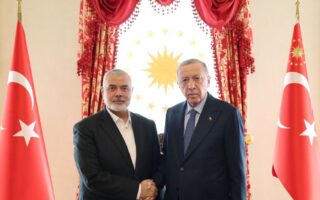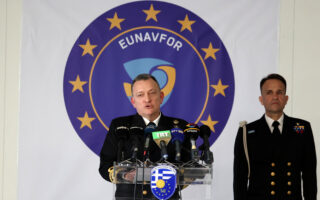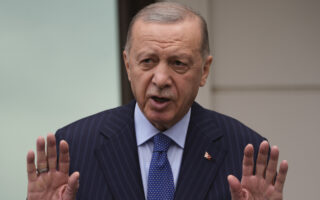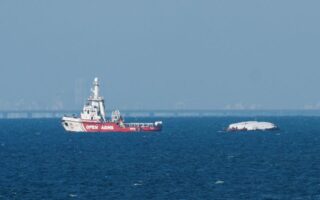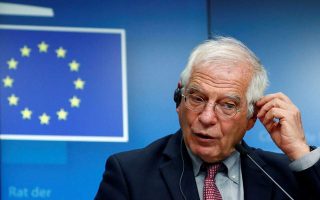How Putin fuses Ukraine and the Middle East
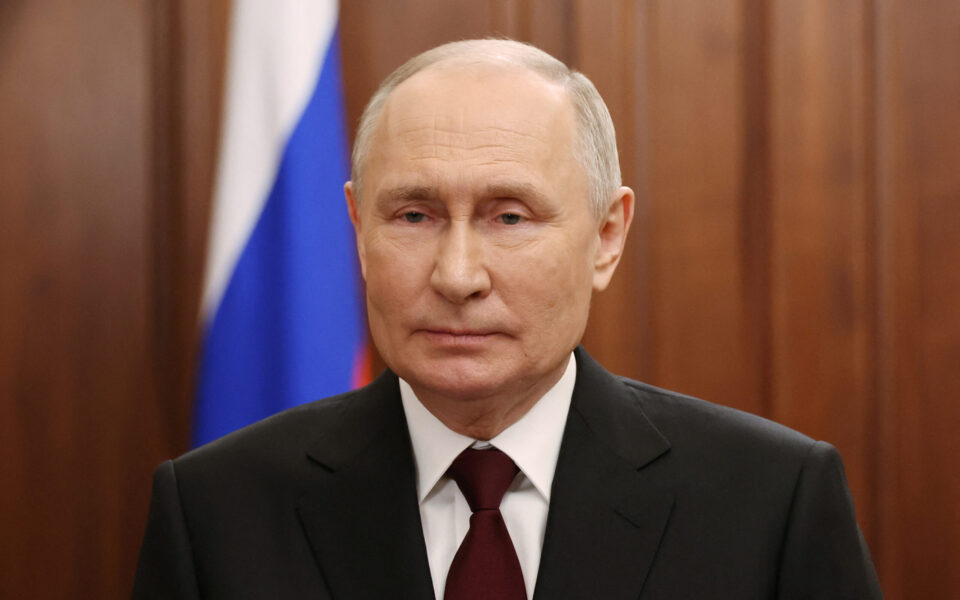
He is the author who opined that “geography is taking revenge” and that “you have to think about war, that’s the only way to be prepared.” Kathimerini met with the distinguished geopolitical analyst Robert Kaplan, Robert Strausz-Hupe Chair at the Foreign Policy Research Institute (FPRI), in the “library” of the 9th Delphi Economic Forum after his speech. Robert Kaplan joins the group of analysts who agree that we have long been experiencing a global upheaval in the balance of power, with him caustically stating that “it has now broken into the headlines.”
“We have a war in Ukraine, which is the biggest war in Europe since 1945. It is much bigger than the wars of the 1990s in the Balkans, which were between minor powers and basically energized only Western elites. These wars did not really penetrate into the Western public.”
“Today,” he explains, “we have the war in Gaza, obviously, and we also have the continuing growth in armaments in Asia with the purchase of high-end missile submarines. So, there is no international community and what there is is a balance of power between many states and regions, and most of the time that balance works peacefully. But other times, it does not work or somebody has miscalculated so it leads to violence. And I think that is where we are at now. But to think that there is an international community is almost to say the UN can manage the world or something like that, which cannot happen.”
Kaplan points out that the confrontation between Israel and Iran “brings Russia onto the side of Iran in the Middle East, because beforehand Putin was very, you know, had a balanced policy between Israel and its neighbors.” As the author states, “[Benjamin] Netanyahu used to brag about how good his relationship was with [Vladimir] Putin. But that has changed since the Ukraine war. Russia has discovered a new use for Iran, as in the international landscape [Putin] fuses the Middle East with Europe, meaning the war in Ukraine with the conflict in the Middle East and makes it more of a global struggle.”
Turning to Turkey, Kaplan explains the consequences of Recep Tayyip Erdogan’s long stay in power. “Imagine if Donald Trump had been running America for 22 years,” he stresses, “what would be the state of the Justice Department and the State Department? Erdogan has really disabled many Turkish institutions. However, he was weakened in the recent elections, and we can look forward to a post-Erdogan world. The question is, what will Turkey look like the day after? Will institutions be so weak that we will have a very unstable democracy? Or will it recover very quickly under a dynamic leader? I do not know, but clearly, we have to start thinking of a post-Erdogan world.”
Kaplan assesses that Erdogan has followed “a neo-Ottoman policy in the Middle East. For that matter, so did Turgut Ozal, who is the real inventor of ‘neo-Ottomanism.’ One could argue that Erdogan has done a terrible job at it because he has aligned himself not with moderate Sunni Arab regimes, but with radical elements. You know, it is an ironic thing to say, but Erdogan does not have many friends in the Arab world, despite his outreach, because he made this miscalculation of aligning himself with radical forces.”
“I remember a time,” he says, “in the 1980s when I lived in Greece, where Greece and Israel had terrible relations under [Andreas] Papandreou. It was like two enemy countries, almost. And that era is over and it has something to do with the natural gas in the Eastern Mediterranean.”
What will change in Europe and the Middle East if predictions of Trump’s re-election are confirmed? “If Trump returns, the implementation of even one of those positions is going to weaken Europe. He is not going to be a consistent, dynamic supporter of Europe the way that all American administrations were. The Europeans are already starting to price in a possible Trump victory. You can see that by the added aid to Ukraine. Talk about raising their defense budgets, talk about integrating their armed forces more, more. This is all about ‘pricing’ in a possible Trump victory.”
